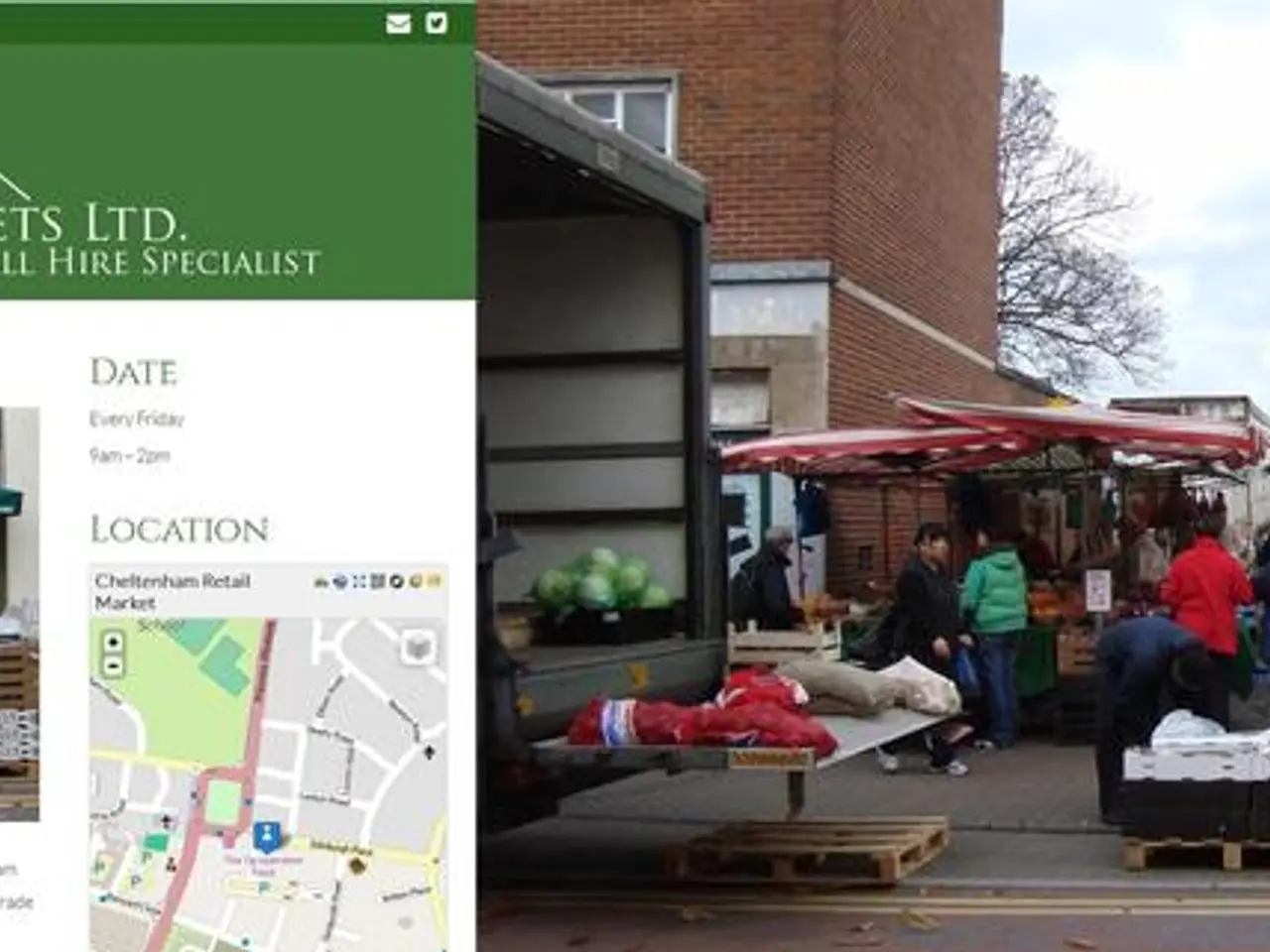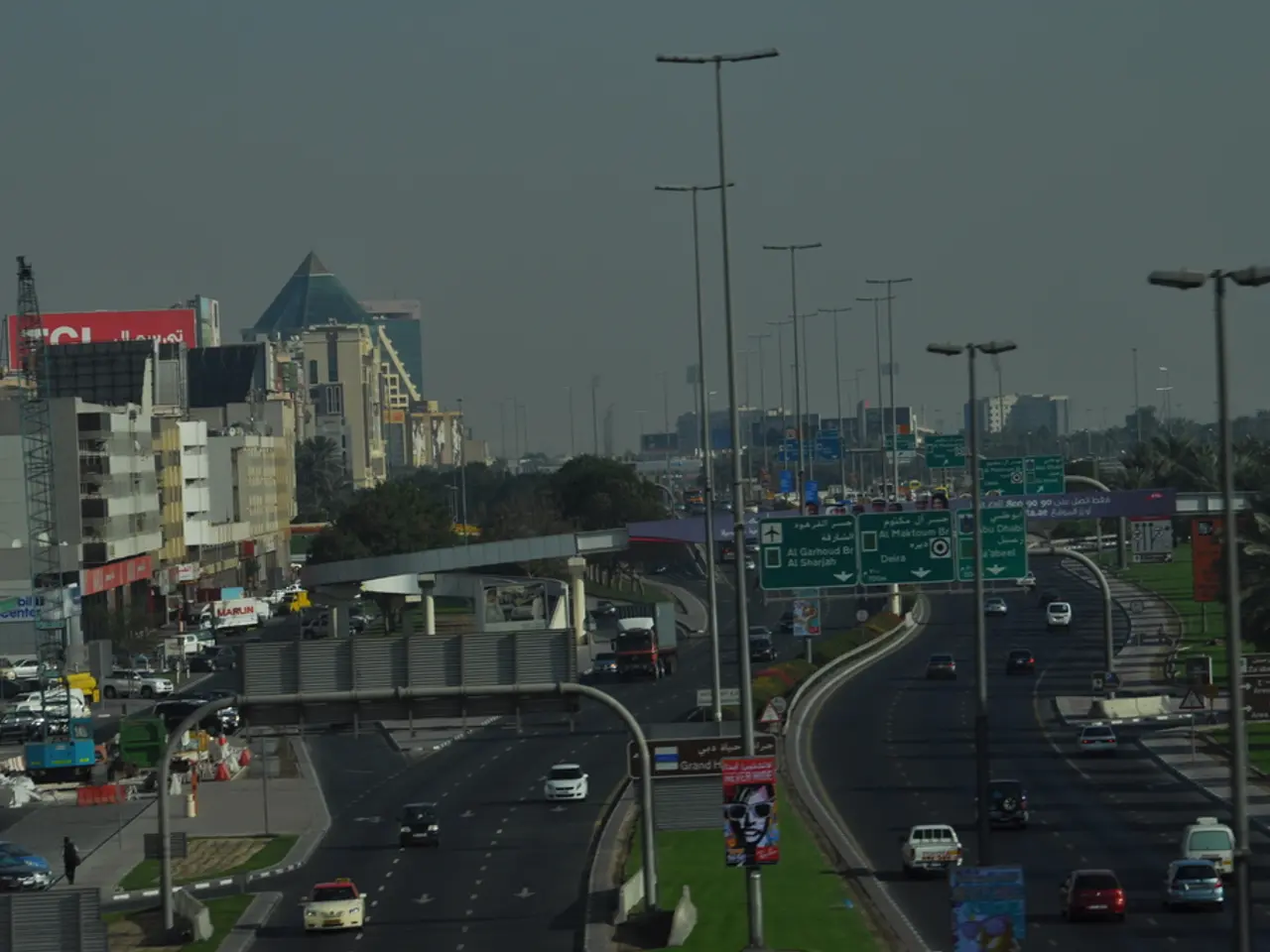The Rent Cap Extension: A Continued Struggle for Housing Affordability in Germany
Extension of rental price cap to counteract price increases extended until 2029.
The German government has extended the infamous Mietpreisbremse (rent brake) rent control law until the end of 2029. This legislation aims to counteract mounting housing affordability issues, safeguarding tenants from exorbitant rent hikes in high-demand urban areas such as Berlin, Munich, and Frankfurt [1][2][3][5].
The Expanded Rent Brake
The extended rent brake imposes a 10% limit on new rental rates, relative to the average local market price for similar dwellings. The extension primarily affects high-demand cities, with the intention of alleviating pressure on tenants in tight rental markets [1][2][5].
- Timeline: Extended until December 31, 2029.
- Rent Ceiling: New leases should not exceed 10% above the local comparative rent level.
- Scope: Restrictions mainly apply to bustling city hubs.
- Exemptions Revised: The extension narrows exemptions for modernized properties, limiting them to buildings first rented after October 2019 [1][2][5].
A Closer Look at Exceptions
- Buildings initially leased following October 2019 are exempt from the rent cap, allowing modernized or newly refurbished dwellings rented for the first time after this date to command higher rents.
- Furnished flats are soon to be subject to tighter regulations, aimed at curtailing landlords' attempts to inflate prices by offering minimal furnishings [2][5].
Perspectives: Stakeholders Weigh In
Real Estate Owners and Investors
Landlords and real estate investors express concern over the prolonged regulatory environment. The extension suppresses potential revenue growth by capping rents in lucrative urban markets, leading to lower yields and stagnating cash flows, particularly for portfolios heavily invested in older, unmodernized buildings. Tighter exemption rules for modernized properties may discourage speculative modernization projects intended to reset rent levels [1][4].
Tenants
Tenant advocates and many renters celebrate the extension as a necessary defense against housing becoming an exclusive luxury. These individuals assert that the rent brake offers essential protection against escalating rents in overheated markets, contributing to housing justice and stability.planned improvements targeting ancillary cost transparency and better regulation of furnished flats aim to close loopholes that landlords previously exploited [2][4].
Political Parties
The extension is a collaborative effort by the current coalition government, led by the Conservative Christian Democratic Union (CDU) together with the Social Democratic Party (SPD). Justice Minister Stefanie Hubig (SPD) characterizes the extension as crucial and just, framing it as a stepping stone to ensure housing remains affordable. The SPD, traditionally tenant-friendly, supports rigid rent controls, while the CDU acknowledges these measures as essential despite concerns about their effect on the real estate market. The coalition also pursues housing supply reforms (Construction Turbo), although these are long-term and have yet to alleviate immediate rent pressure [1][2][5].
In conclusion
The German rent brake extension to 2029 enforces rent caps that limit new rents to 10% above local averages in high-demand cities, tightens exemptions for modernized properties, and introduces plans for stronger tenant protections around ancillary costs and furnished rentals. Although tenants and their political advocates view it as indispensable for housing affordability and fairness, landlords and real estate investors criticize it for reducing rental income growth and investment appeal. The extension reflects ongoing tension between protecting renters and fostering a healthy housing market, with political compromises shaping the evolving regulatory landscape.
[1] https://www.dw.com/en/germany-extends-rent-control-laws-until-2029/a-57425567[2] https://www.dw.com/en/germany-extends-rent-control-laws-until-2029/a-57425567[3] https://www.spiegel.de/wirtschaft/soziales/deutung-der-verlaengerung-des-mietpreisbremse-verlierer-und-sieger-a-d66d5838-397f-491f-88df-d047a041a59e[4] https://www.dw.com/en/germany-extends-rent-control-laws-until-2029/a-57425567[5] https://www.dw.com/en/germany-extends-rent-control-laws-until-2029/a-57425567
- As a result of the rent brake extension, the finance sector may witness a decrease in rental income for real estate investments in high-demand cities, impacting cash flows and returns on investments in older buildings.
- The extension of the rent brake, in the realm of politics, signifies a balance between ensuring housing affordability and safeguarding the interests of businesses, a delicate dance that underscores policy-making in the realm of general-news, particularly in areas such as finance and business.





